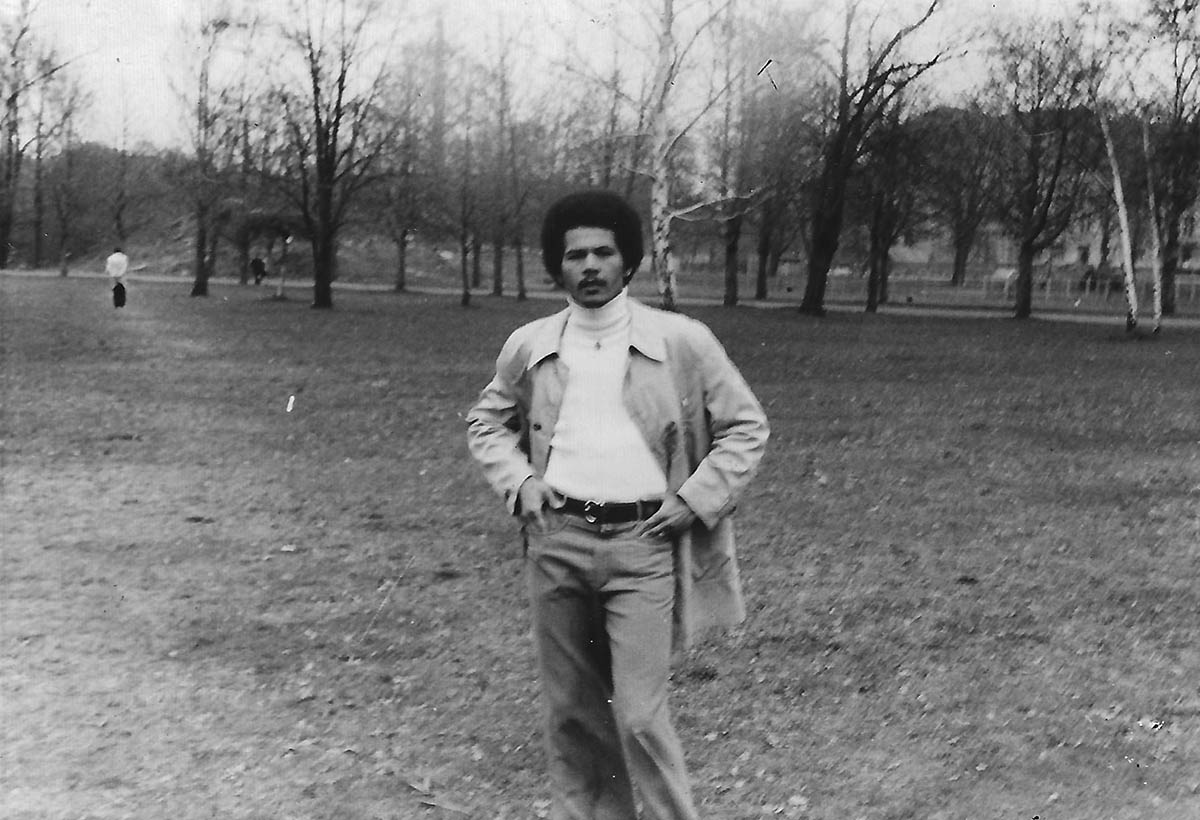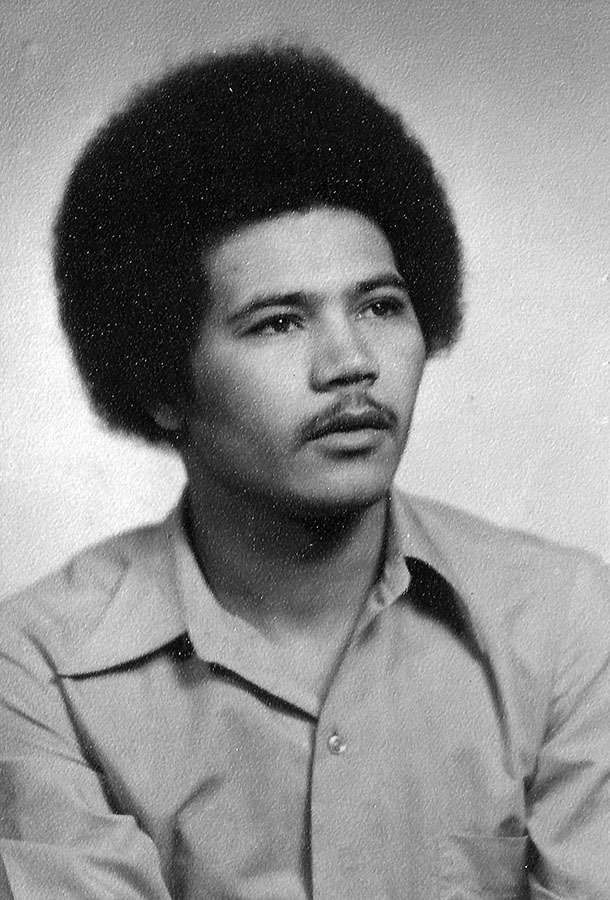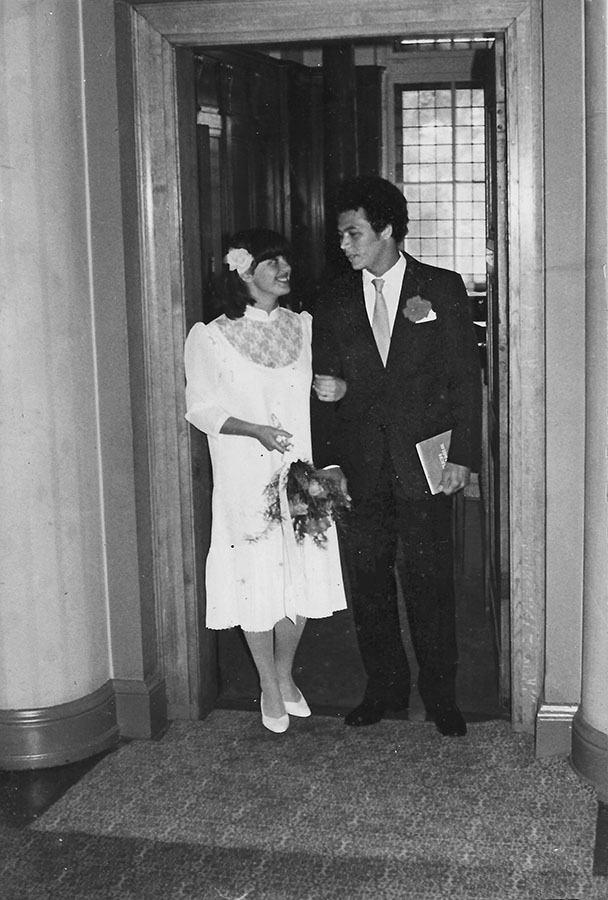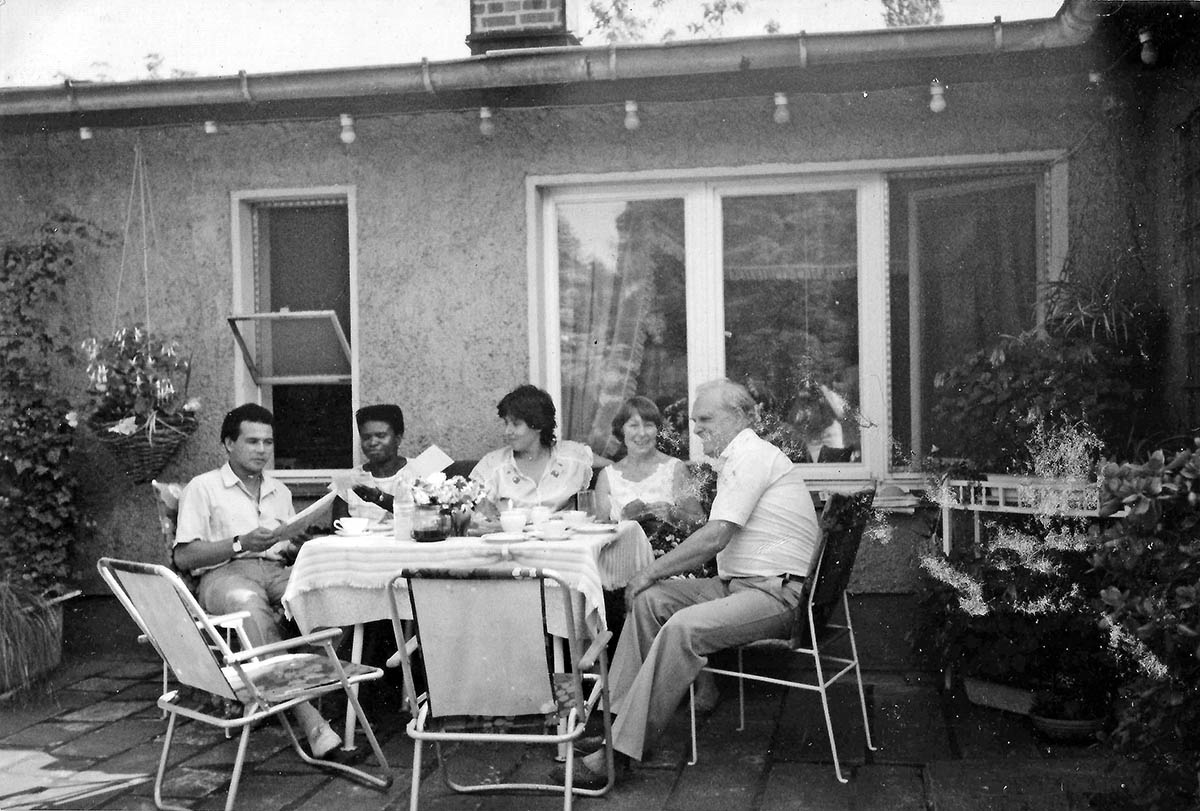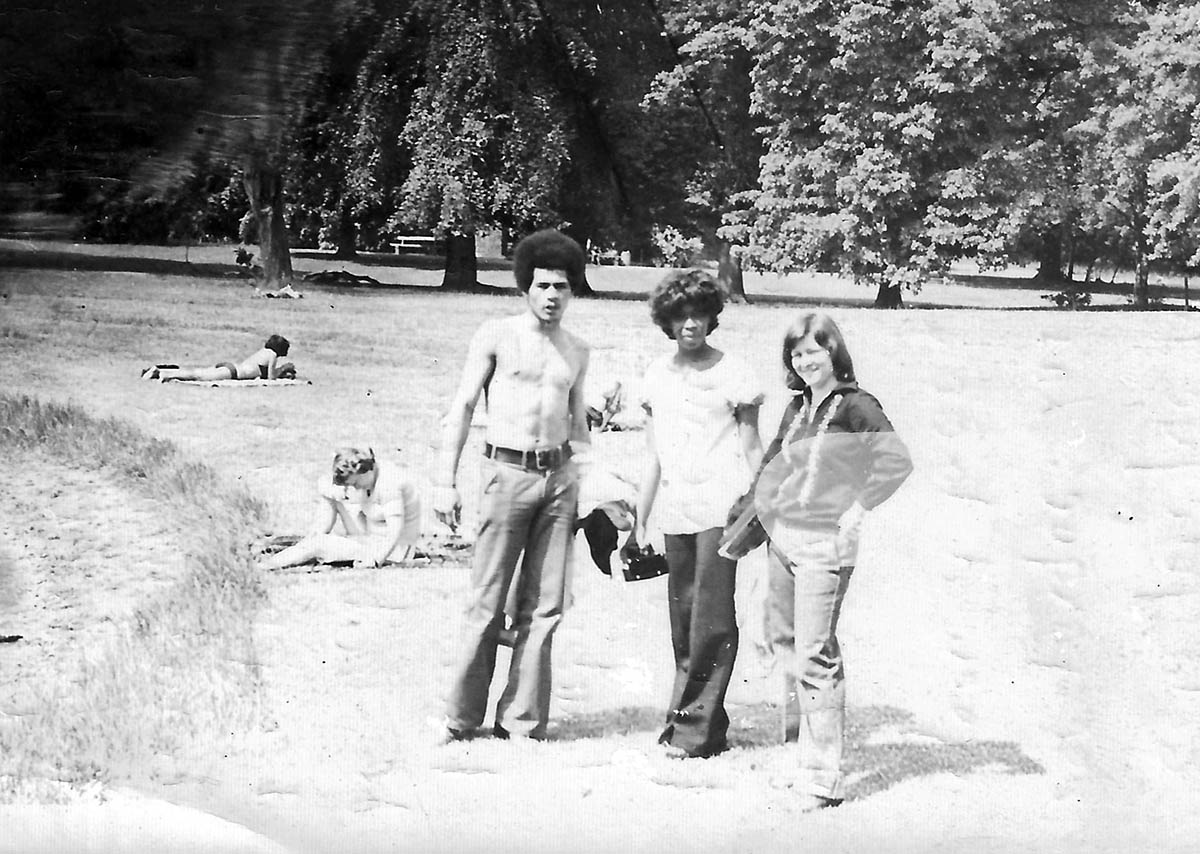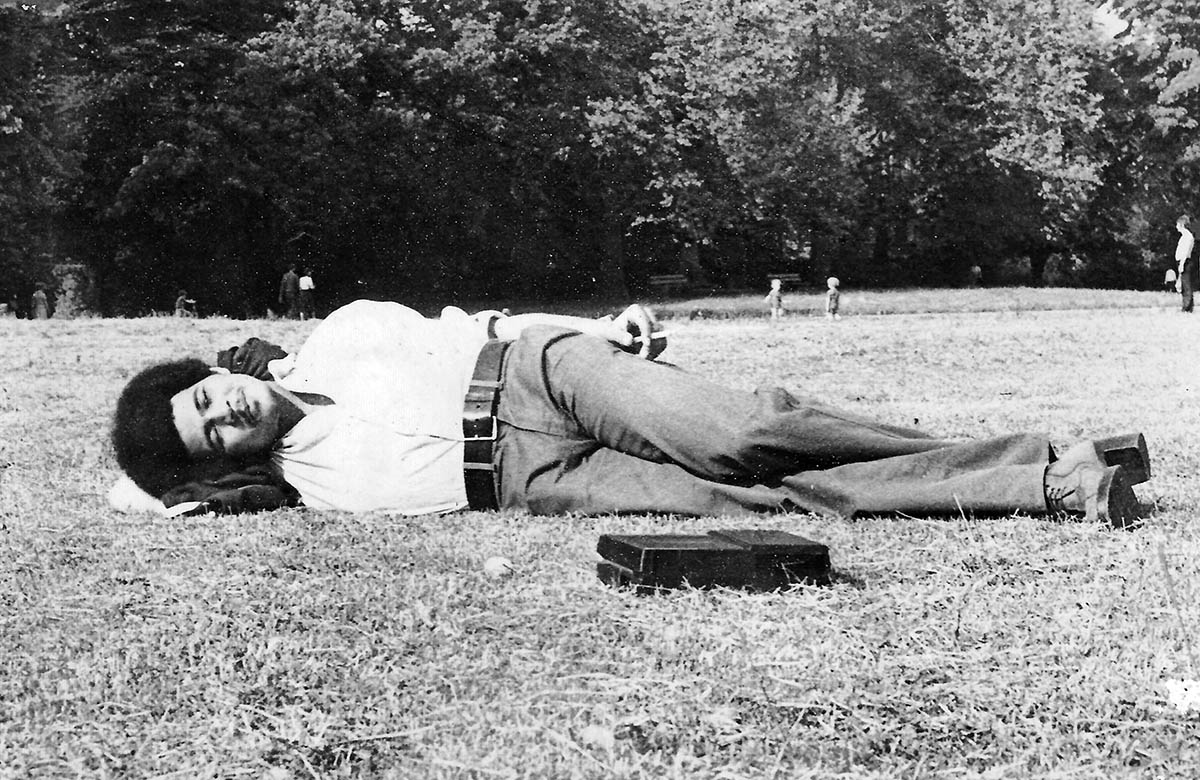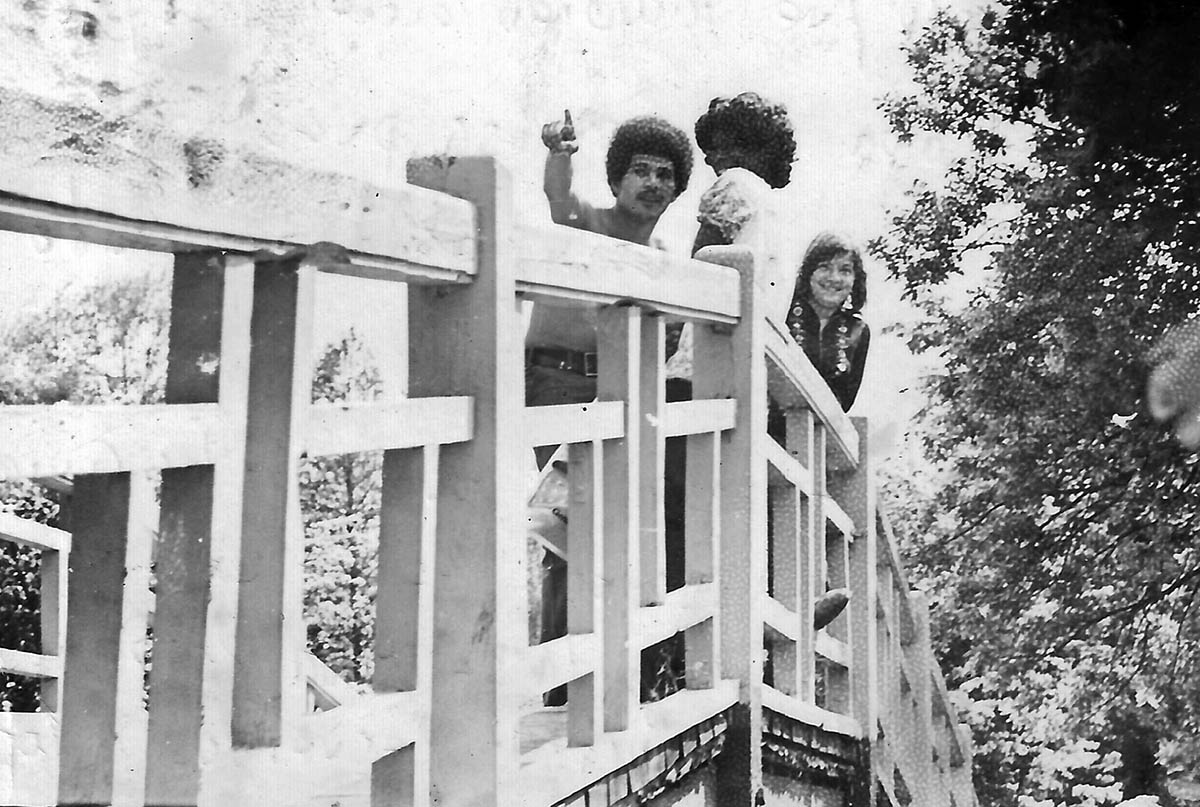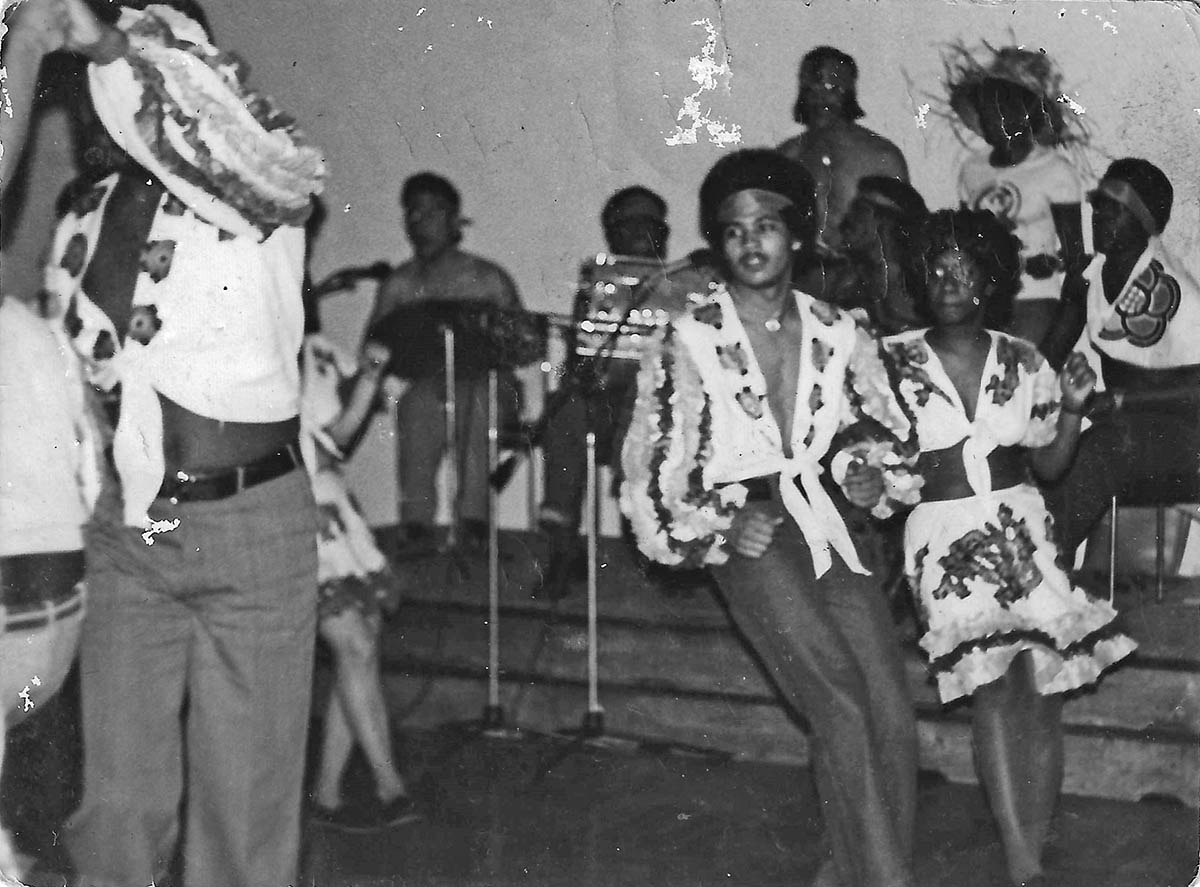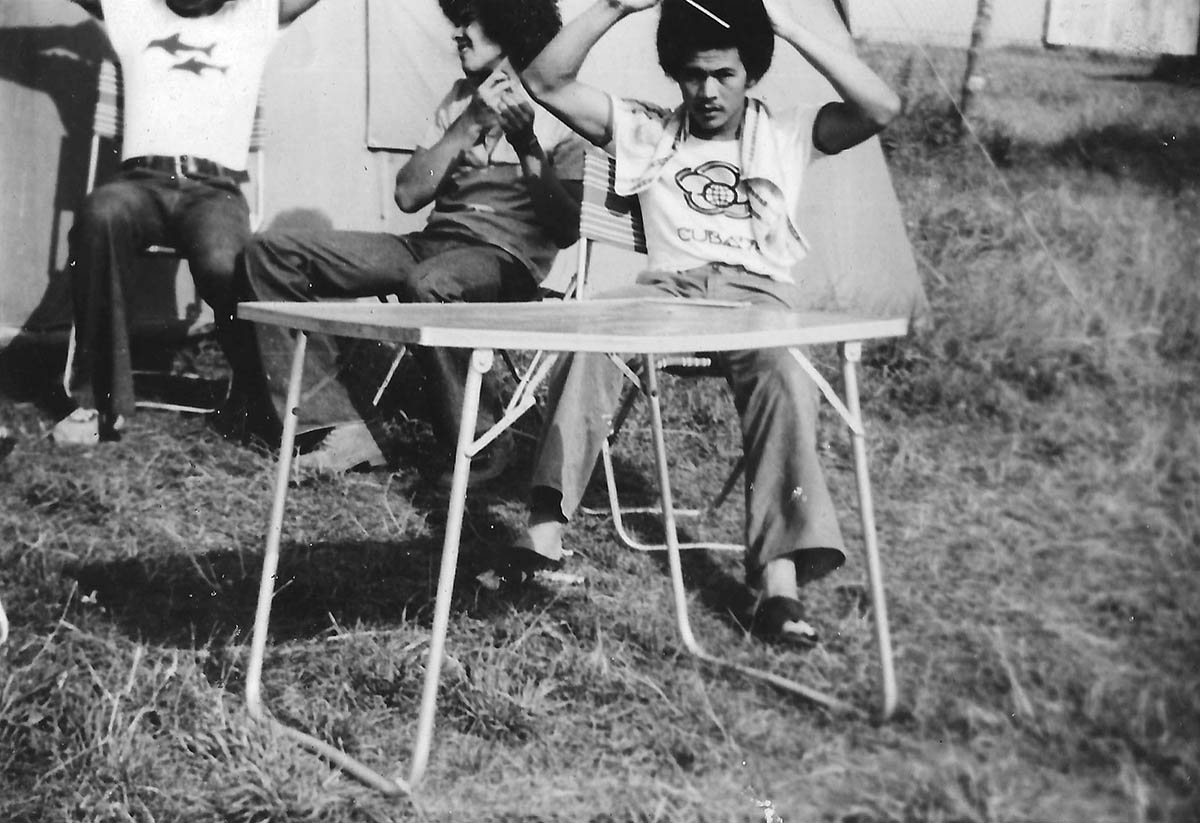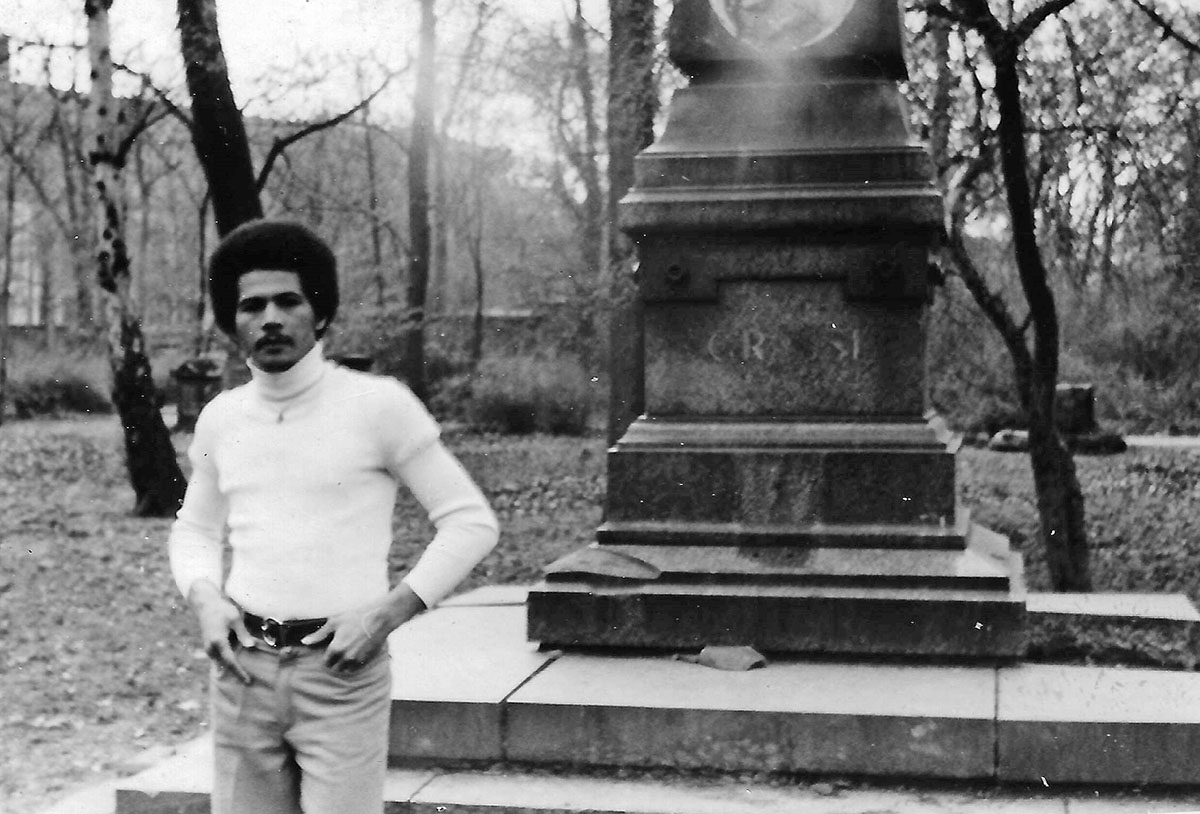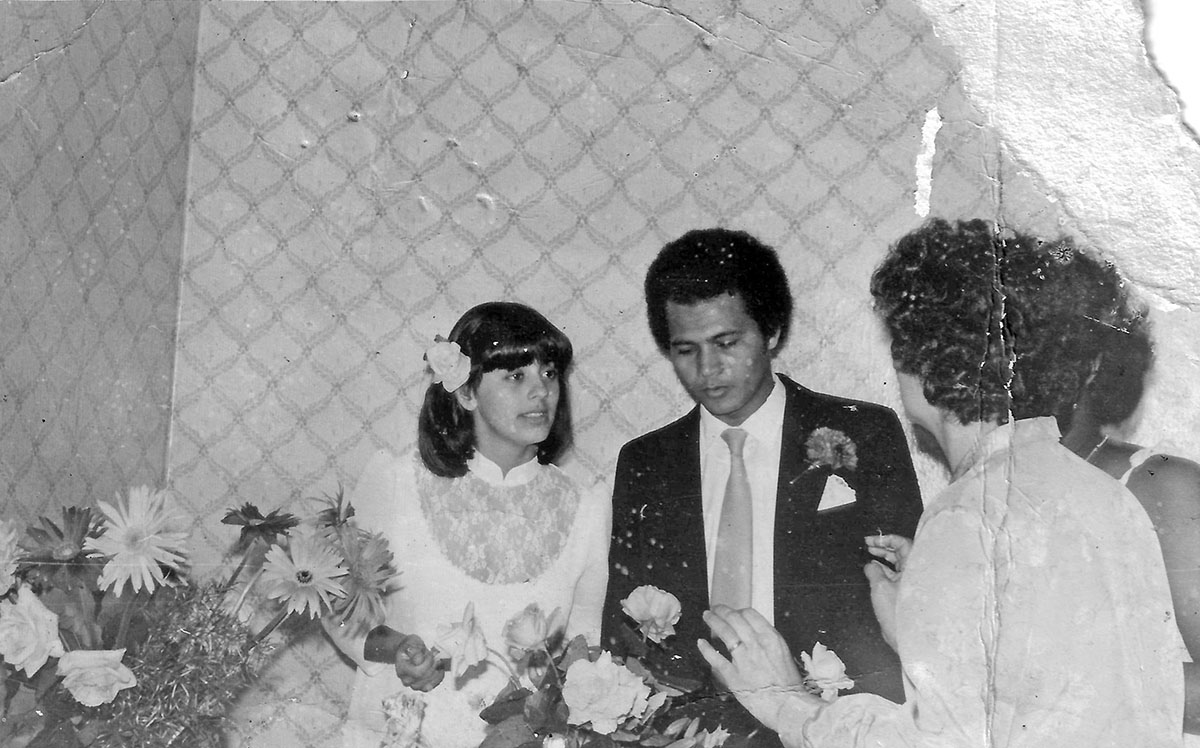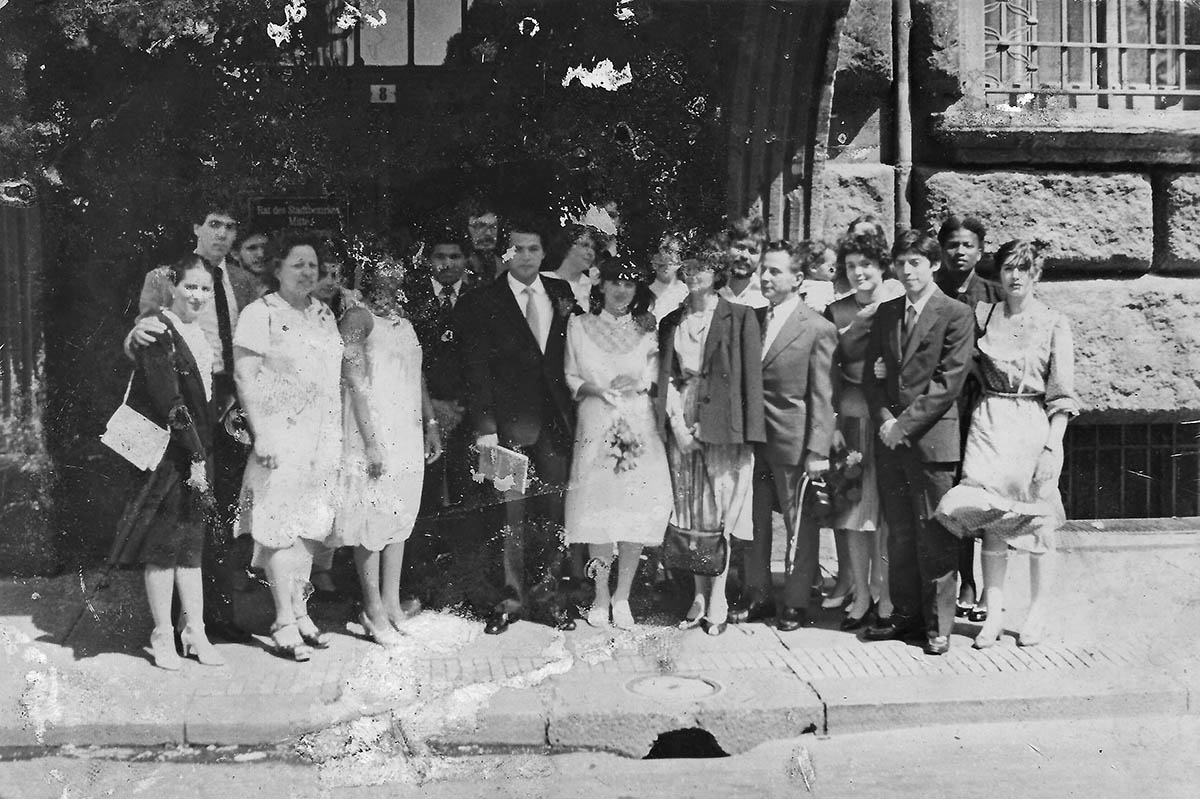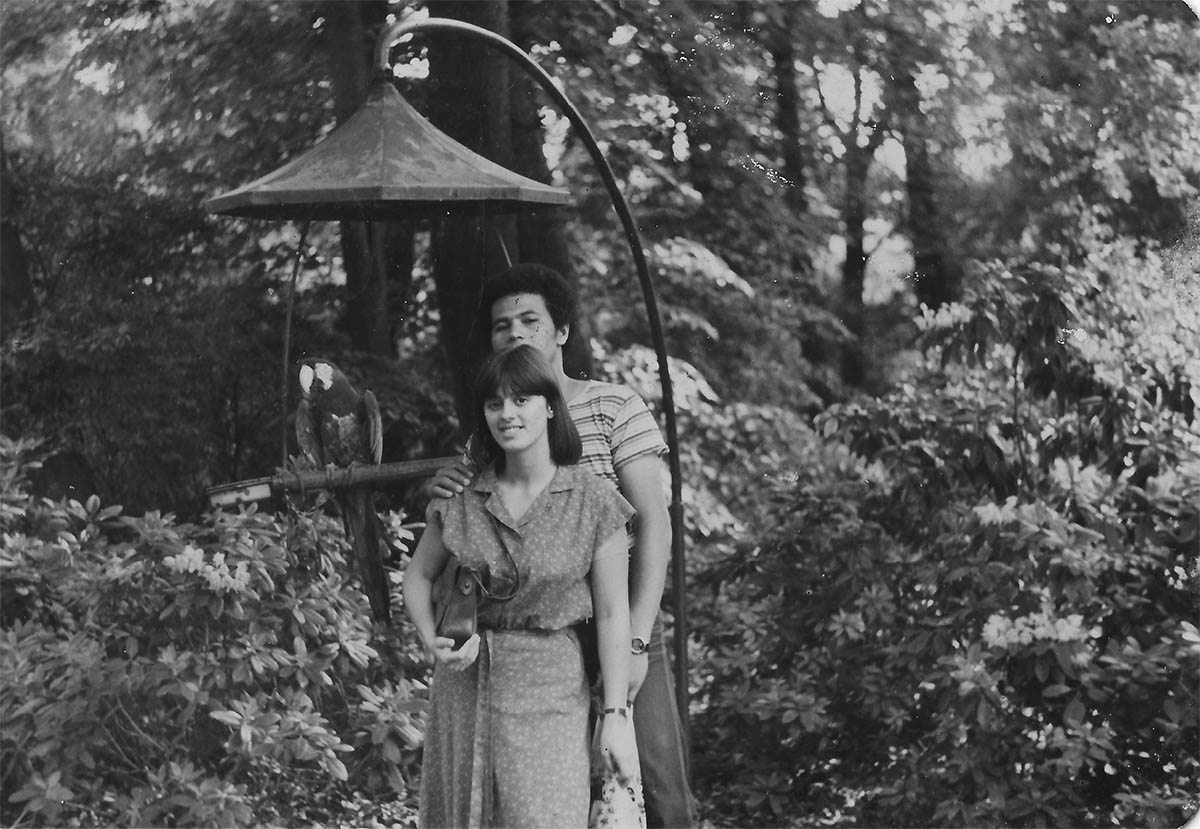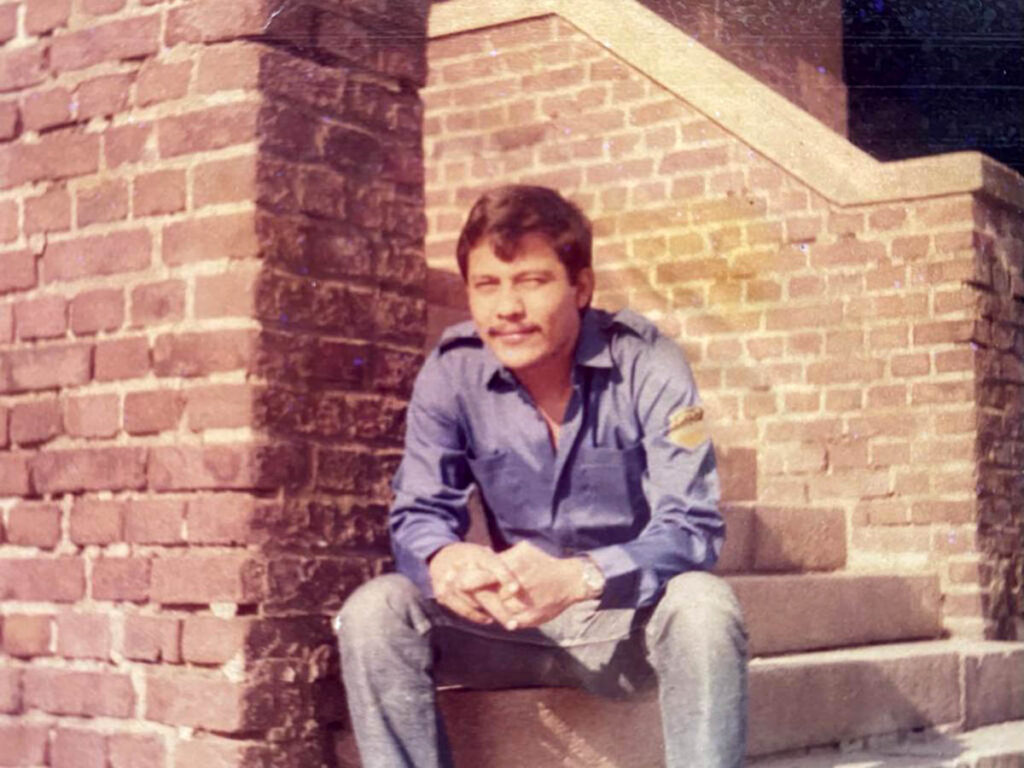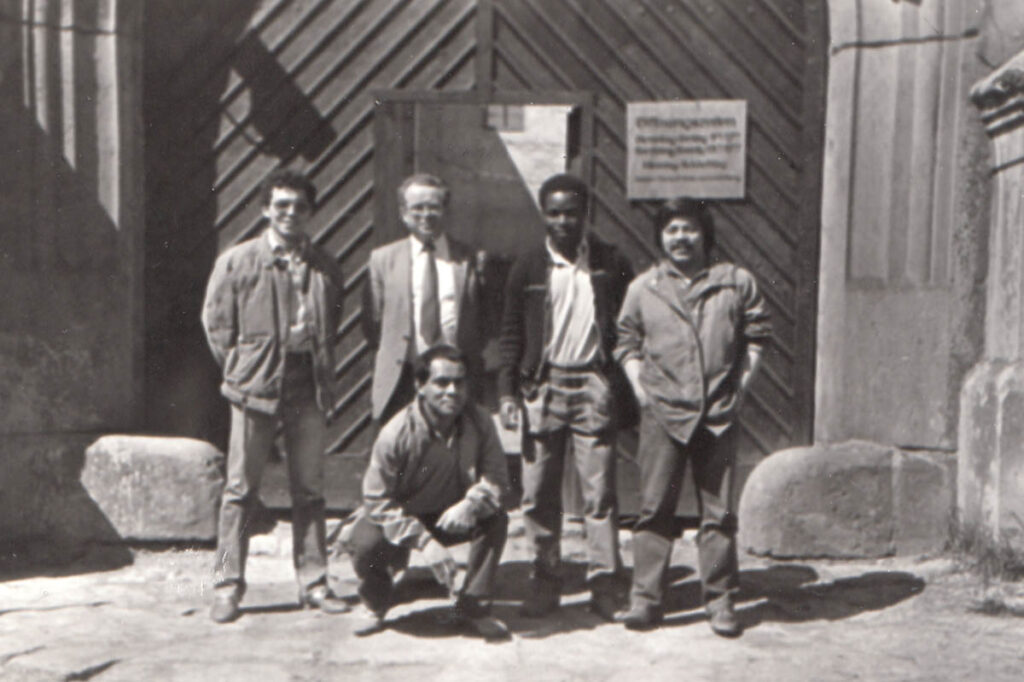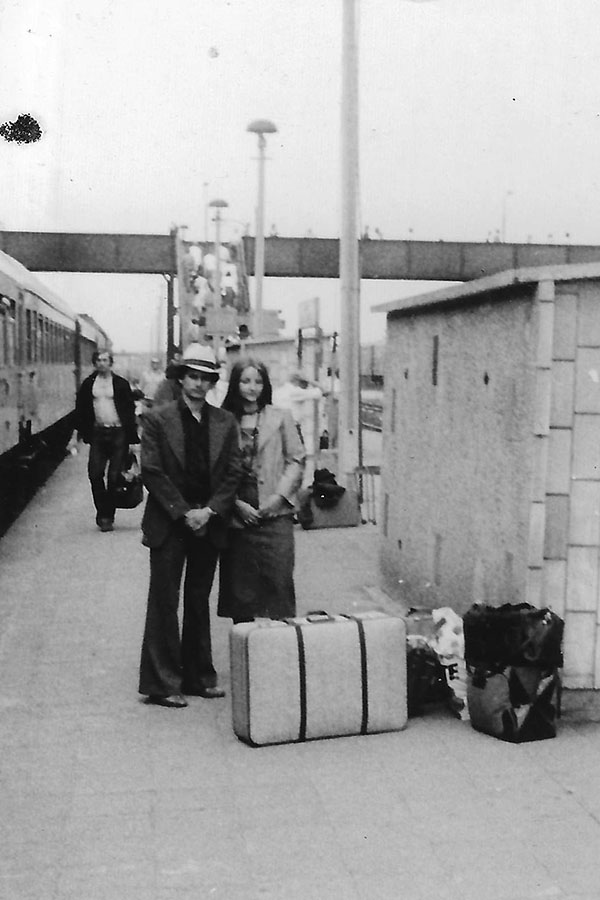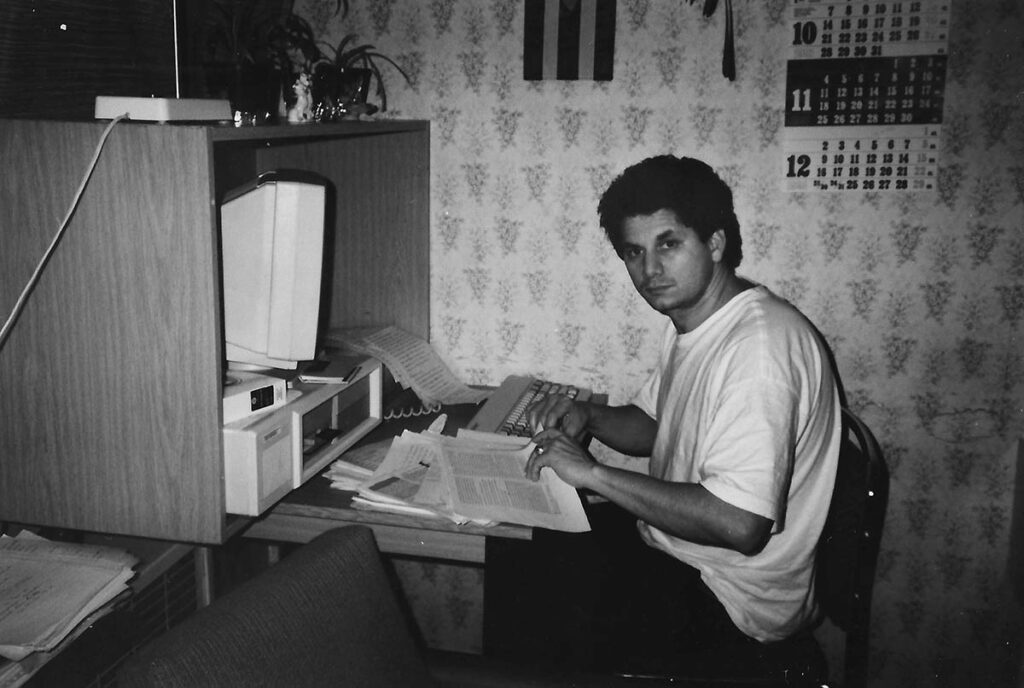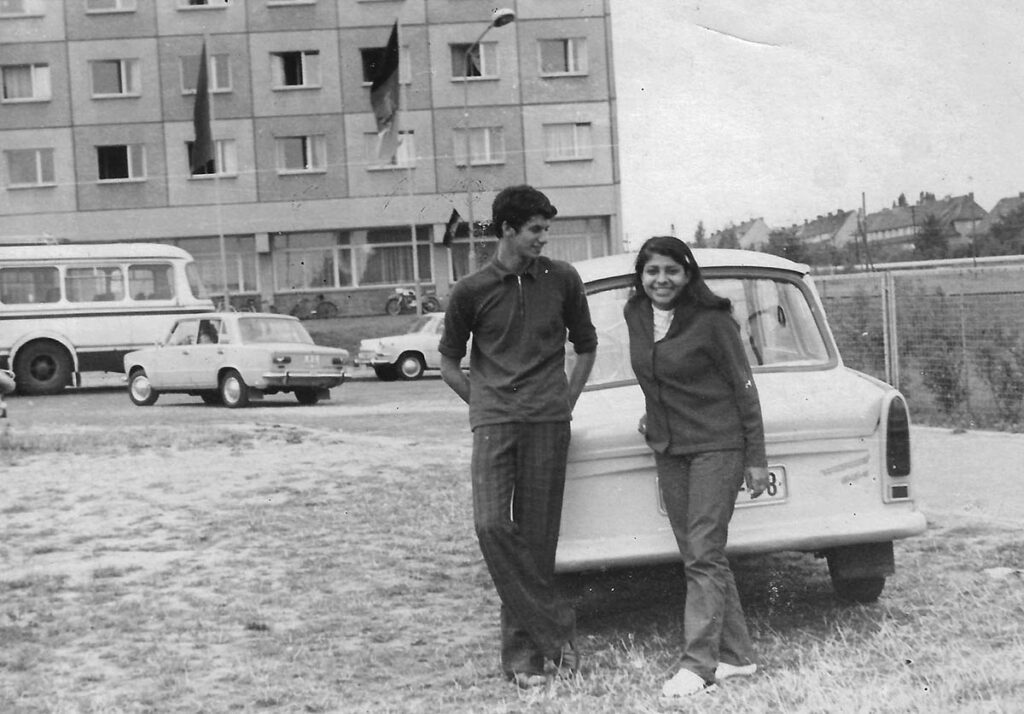Bobby Díaz Gurriel
To this day Leipzig is a second home for Bobby Díaz. From 1977 to 1983 he was a student of German studies at the Karl Marx University in Leipzig. In 2017 he establishes the RB Leipzig fan club in Havana.
Interest in Germany
As a teenager, Bobby Díaz falls unhappily in love with his teacher. To console him, his grandfather gives him the Spanish version of Goethe’s “The Sorrows of Young Werther” to read. His grandfather is a tailor, who owns a German sewing machine, scissors from Solingen and loves German classical music. As a result, Bobby develops a strong interest in Germany. At the age of seventeen he begins to learn German at a Cuban language institute. At the top of his class in 1977, he is accepted for German studies at the Karl Marx University in Leipzig.
International residence
Despite a slightly bumpy start — no one picks him up, when he arrives in Berlin, and it is freezing — he thoroughly enjoys his studies and life in the dormitory in no time. Initially he shares his twin room with a student from Zambia, later with a Bulgarian and then with a man from the Soviet Union. Students from many different nations live in the dormitory, but no Germans. Nevertheless, they also have a lot of contact with fellow German students. These invite them to visit their homes, to get to know their parents, to celebrate Christmas together.
Bobby Díaz receives a monthly scholarship of 270 marks from the GDR, plus 70 marks from the Cuban Embassy, and, being an outstanding student, a merit scholarship of 100 marks. Given that there are no tuition fees in the GDR he can live well on this. Sometimes Bobby and his fellow Cuban students are mocked by Eastern European students as “Golden exiles” — a reference to the luxurious life of those Cubans who fled to Miami after the Cuban Revolution in 1959. “Leipzig formed us as humans,” Bobby Díaz emphasizes, “we learned to be determined and punctual, to work collaboratively, to act as a group. It defined us.”
In Cuba food stamps still existed, but not in East Germany.
Bobby Díaz Gurriel, Havana 2022
Marriage and racism
Bobby Díaz feels at home in Leipzig, makes good friends and falls in love with the Portuguese student Ana Paula. They want to get married, but that is not easy; after all, Portugal is considered a Western country. Not only the East German authorities, but also the bride and groom’s countries of origin must approve the marriage. Bobby turns to the Cuban embassy. And since Ana Paula’s father is a member of the Portuguese Communist Party, the embassy finally agrees.
Among the students, Bobby does not experience segregation. It is different in public: Bobby talks about the racism to which couples from different regions of origin are exposed. Once he offers his seat to a woman in the streetcar. She insults him and refuses the offer.
It was a turning point in our life.
Bobby Díaz Gurriel, Havana 2022
Going home
In 1983, in less than six years, Bobby Díaz finishes his German studies and returns to Cuba. For him this is no question: “We wanted to give something back to the country.” Ana Paula follows him to Cuba one year later. Over the following years Bobby works as a lecturer at the foreign language faculty of the University of Havana. In 1988 he once again visits East Germany to participate in a summer school. The fall of the Berlin Wall will later surprise him. He is happy about the unification process, because he sees Germany as a unity across ideological borders. Until 2016, he works as a tour guide for tourists from Germany.
“Leipzig is my second home,” Bobby points out. When he visits the city again in 2016, RB Leipzig has just been promoted to the Bundesliga, the German Premier League. In Havana, Bobby and some “old comrades,” mostly men who also studied in the GDR, establish the officially registered Cuban RB Leipzig fan club Mei Leibzsch, which now has almost 100 members.
Today Bobby Díaz lives as a pensioner in Havana.
Credits:
Elaine del Valle Cala conducted the interview in Havana in 2021.
Text: Isabel Enzenbach
Research and research protocol photos: Elaine del Valle Cala, Isabel Enzenbach

